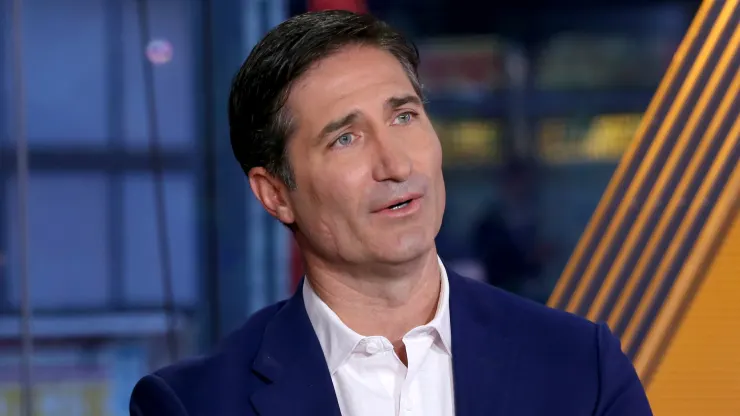Starbucks recently announced that Brian Niccol, its new CEO, will not be moving to the company’s headquarters in Seattle. Instead, Niccol will continue living in Newport Beach, California, and will commute to work using a corporate jet.
This decision revealed in an SEC filing, highlights a notable shift in executive work arrangements and raises questions about how flexibility is being offered to top leaders compared to other employees.
Why Is Brian Niccol Commuting Instead of Relocating?
Brian Niccol, who will start his role at Starbucks next month, has negotiated a distinctive work arrangement. He will maintain his residence in Newport Beach while traveling to the Seattle office on a corporate jet.
Niccol’s compensation package includes a base salary of $1.6 million annually, with the potential to earn up to $7.2 million in performance bonuses. Additionally, he can receive up to $23 million in annual equity awards.
Niccol’s deal mirrors an arrangement he previously secured when he joined Chipotle as CEO in 2018. At that time, he also lived in Newport Beach while Chipotle was headquartered in Denver, Colorado. After Niccol’s appointment, Chipotle moved its headquarters to Newport Beach.
How Does This Arrangement Affect Starbucks’ Employees?

The flexibility granted to Niccol highlights a growing trend where high-ranking executives are offered more leeway than other employees. Starbucks employees have been required to work from the office at least three days a week since early 2023.
In contrast, Niccol’s deal allows him to work remotely from California for most of the week, with only periodic visits to Seattle. Raj Choudhury, a professor at Harvard Business School, notes that this trend of executives working remotely is becoming more common. “Companies are willing to offer flexibility to attract and retain top talent,” he says. This is particularly relevant in today’s competitive job market.
What Does This Mean for Other Companies?
Niccol’s arrangement at Starbucks may influence how other companies approach remote work for their executives. For instance, Victoria’s Secret recently hired a new CEO, Hillary Super, who will work from New York City instead of the company’s headquarters in Columbus, Ohio. This reflects a broader trend where companies are adjusting their policies to meet the needs of high-level leaders.
While some CEOs, like Amazon’s Andy Jassy and JPMorgan Chase’s Jamie Dimon, have emphasized a return to office work, other firms are showing more flexibility. This evolving approach could set a precedent for how executive roles are managed in the future.
Could This Arrangement Impact Workplace Culture?
The flexibility offered to top executives like Niccol might affect overall workplace culture. If more CEOs and senior leaders are allowed to work remotely, it could encourage other employees to seek similar arrangements. Choudhury suggests that if high-level executives work remotely, it might inspire middle managers and other staff to request more flexible work options.
This shift could benefit employees who value work-life balance and may lead to broader changes in workplace policies. “If companies want to attract and retain the best talent, they need to consider offering flexible work arrangements,” Choudhury adds.
Starbucks’ Strategic Move
Starbucks’ decision to accommodate Niccol’s commuting arrangement might be a strategic move to address the company’s recent challenges. It has faced weak sales in its major markets, including the U.S. and China. Niccol, known for successfully leading Chipotle through difficult times, is expected to bring valuable experience to the company.
By offering Niccol this unique arrangement, Starbucks is not only securing a top executive but also demonstrating its willingness to innovate in its approach to leadership and work flexibility. This could potentially attract more top talent and improve the company’s performance.
Looking Forward
As the trend of flexible work arrangements for executives continues to grow, it will be important to watch how this impacts workplace policies and employee expectations. Brian Niccol’s situation represents a shift in how companies approach executive roles and remote work.
This development might influence other organizations to adopt similar policies, leading to more flexible work options for a broader range of employees. Brian Niccol’s new commuting arrangement with Starbucks highlights a significant change in executive work practices. As companies continue to adapt to new work trends, the impact on workplace culture and employee expectations will likely evolve.





